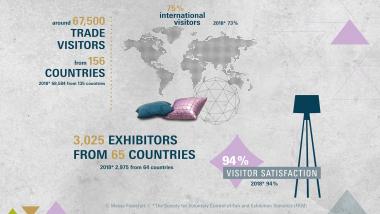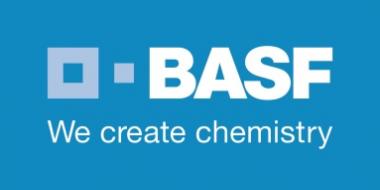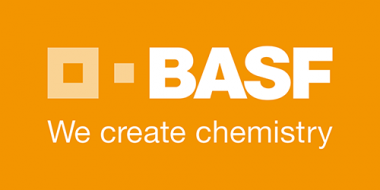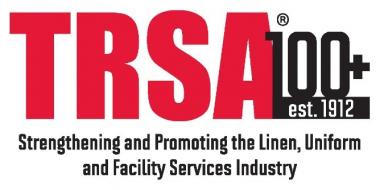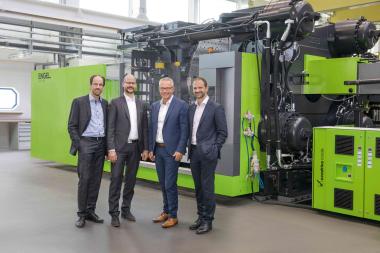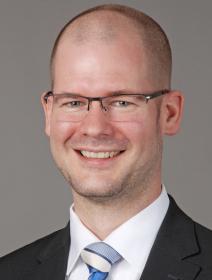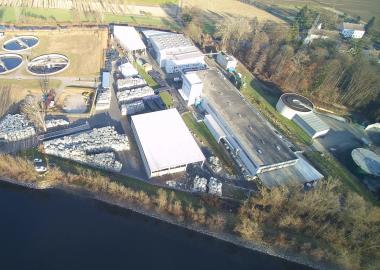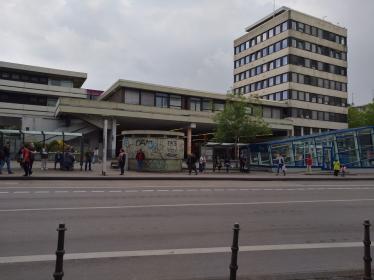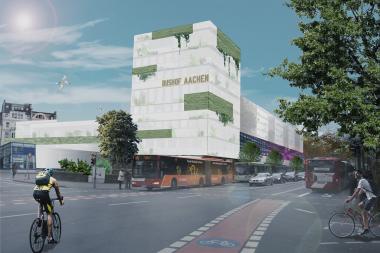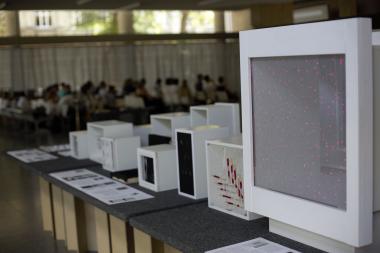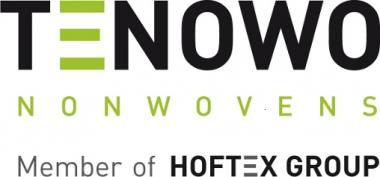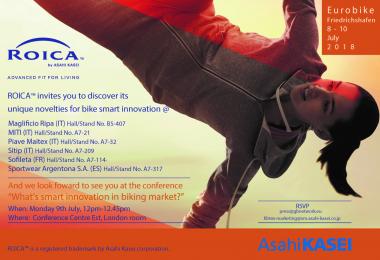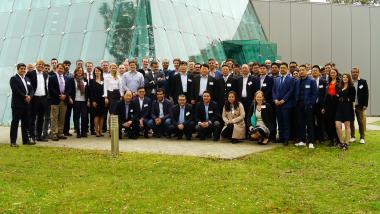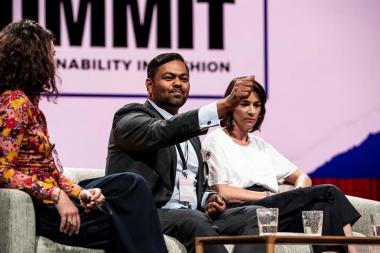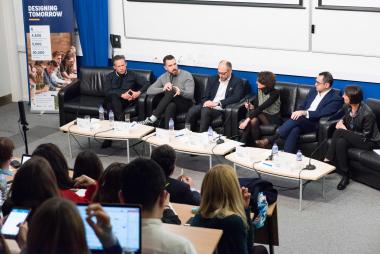Heimtextil 2019: A lively start to the new furnishing season gives hope for a good business year ahead
The international home textiles industry has enjoyed a promising start at Heimtextil in Frankfurt am Main, which finished Friday, 11 January. The challenging economic situation and uncertainty in the retail sector were countered by a positive and confident mood at the world’s leading trade fair.
3025 exhibitors from 65 countries* took the international trade fair for home and contract textiles to a 15-year high: ‘Exhibitors and visitors accepted the new trade fair concept with great enthusiasm and confirmed the trade fair’s position as the world’s most important meeting place for the industry. The quality of the decision-makers impressed the exhibitors, as did the number of new business contacts from 156 countries, especially international ones – thus enabling Heimtextil to set a new benchmark’, says Detlef Braun, Member of the Board of Management of Messe Frankfurt. ‘Around 67,500 visitors* ensured that there was a busy atmosphere in the halls, despite a slight decline due to various reasons, such as difficult travel conditions on account of the storms in the alpine region and airport strikes in Germany’. [*For comparison, 2018: 2,975 exhibitors from 64 countries; 68,584 visitors from 135 countries, FKM-tested)]
3025 exhibitors from 65 countries* took the international trade fair for home and contract textiles to a 15-year high: ‘Exhibitors and visitors accepted the new trade fair concept with great enthusiasm and confirmed the trade fair’s position as the world’s most important meeting place for the industry. The quality of the decision-makers impressed the exhibitors, as did the number of new business contacts from 156 countries, especially international ones – thus enabling Heimtextil to set a new benchmark’, says Detlef Braun, Member of the Board of Management of Messe Frankfurt. ‘Around 67,500 visitors* ensured that there was a busy atmosphere in the halls, despite a slight decline due to various reasons, such as difficult travel conditions on account of the storms in the alpine region and airport strikes in Germany’.
One topic that occupied both exhibitors and visitors was the current and future economic situation. A further challenge is the increasingly evident changes that are happening in trade. Increasing revenues and revenue shares in online retailing stand in the way of the efforts made by the stationary retail trade to maintain their inner-city businesses. ‘The small business specialist trade, but also department stores and multibrand stores, and thus the heart of our visitor target groups, are under pressure from the constantly increasing levels of e-commerce. With Heimtextil and our consumer goods fairs in general, we offer these retailers in particular clear perspectives and diverse inspiration in an ambiguous world’, continues Braun.
Heimtextil made it easier for its visitors to access valuable inspiration and business momentum thanks to an optimised trade fair concept and the associated new hall structure. ‘The new concept brought more visitors to the stand’, was the feedback from Andreas Klenk, Managing Director of Saum & Viebahn from Kulmbach in Franconia about hall 8.0 which offered textiles editeurs and manufacturers of curtain and sun protection systems a common platform for the first time. ‘It was the right decision to merge the different segments. We had high quality discussions with respect to both export and domestic business, and are satisfied with the trade fair’.
As part of the new concept, Heimtextil expanded its unique product range across the entire exhibition site and also included the new hall 12, which has been an additional architectural highlight on the Frankfurt exhibition grounds since September.
Top international companies from the Bed & Bath Fashion segment presented their wares here. For the company Curt Bauer from Aue in Saxony, the première of the new hall was a successful one. ‘We're very enthusiastic about the new hall 12. The product range there was very well received. We are very satisfied with the quality of visitors to our stand. In addition to a good frequency of German visitors, we are particularly pleased about growth from China and Russia’, says Managing Director Michael Bauer.
Natural materials, PET and ocean plastics
Heimtextil set a standard in terms of sustainability: after the first global climate protection agreement for the textile industry was signed by 40 leading fashion companies, organisations and associations at the World Climate Conference in Katowice last December, the focus in Frankfurt was also on environmental progress in the textile industry. Numerous exhibitors presented progressive solutions, for example in the recycling of PET bottles and ocean plastic as well as in the use of certified natural materials. ‘Sustainability was the theme for us at this year’s Heimtextil. Major media players visited us and the 'Green Tour’ guided tour stopped by. We presented many things, including our first vegan duvet and fair silk products, all 100 per cent produced in Austria’, says Denise Hartmann, Marketing Manager at Hefel Textil. The topics of water consumption in the textile industry and microplastics also increasingly came to the fore. The exhibitor directory ‘Green Directory’ alone contained around 150 progressive companies listing sustainably produced textiles. The offer was supplemented by its own lecture series as well as theme-specific tours, which provided valuable impetus and
underpinned the pioneering green position of the trade fair.
Sleep becomes new lifestyle theme
Heimtextil also focused on sleep as one of the upcoming lifestyle trends. While a balanced diet and sufficient exercise are now a natural part of a healthy lifestyle, restorative sleep is still neglected* although it is one of the most important building blocks for long-term physical and mental well-being. At Heimtextil, a number of new products and aspects came to the fore that help people become sensitised to and analyse their sleep behaviour and promote healthy sleep. Around the redesigned hall 11.0 and in the adjoining lecture area ‘Sleep! The Future Forum’, representatives from the national and international bed industry enjoyed attractive product presentations and superb speeches on the topics of sustainability, hospitality, sport and digital.
In addition to the renowned trend show, the trade fair also focused on contract business, particularly in the hotel and hospitality sector, as well as decorative and upholstery fabrics, digital printing solutions and wallpapers.
The next Heimtextil in Frankfurt am Main – its 50th edition – will take place from 7 to 10 January 2020.
*According to a forsa investigation commissioned by the Techniker Krankenkasse
Heimtextil
Messe Frankfurt Exhibition GmbH


